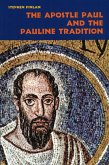"Question with boldness even the existence of a god," Thomas Jefferson asserted, "because if there be one, he must more approve of the homage of reason than that of blindfolded fear." America's third president regarded Jesus as a moral guide rather than a divinity, and in The Jefferson Bible, he highlights Christ's ethical teachings from the Gospels. Discarding the scriptures' supernatural elements and dogma, this volume reflects the deist view of religion, focusing on Jesus' message of absolute love and service.
Jefferson undertook his self-appointed task in 1794, consulting not only the King James Bible but also Greek, French, and Latin versions. He selected verses from the books of Matthew, Mark, Luke, and John, and arranged them in chronological order to form a single narrative. Although Jefferson shared his interpretation with friends and family, he declined to publish it, in keeping with his conviction that religion is a private matterand also to avoid providing his political enemies with ammunition. Not until the turn of the twentieth century did the book appear in print, when it became a tradition to present it to new members of Congress. Unique and influential, this volume reflects not only the thinking of one of the nation's most brilliant statesmen, but also the ideology of the Enlightenment era.
Jefferson undertook his self-appointed task in 1794, consulting not only the King James Bible but also Greek, French, and Latin versions. He selected verses from the books of Matthew, Mark, Luke, and John, and arranged them in chronological order to form a single narrative. Although Jefferson shared his interpretation with friends and family, he declined to publish it, in keeping with his conviction that religion is a private matterand also to avoid providing his political enemies with ammunition. Not until the turn of the twentieth century did the book appear in print, when it became a tradition to present it to new members of Congress. Unique and influential, this volume reflects not only the thinking of one of the nation's most brilliant statesmen, but also the ideology of the Enlightenment era.
Dieser Download kann aus rechtlichen Gründen nur mit Rechnungsadresse in A, D ausgeliefert werden.
Es gelten unsere Allgemeinen Geschäftsbedingungen: www.buecher.de/agb
Impressum
www.buecher.de ist ein Internetauftritt der buecher.de internetstores GmbH
Geschäftsführung: Monica Sawhney | Roland Kölbl | Günter Hilger
Sitz der Gesellschaft: Batheyer Straße 115 - 117, 58099 Hagen
Postanschrift: Bürgermeister-Wegele-Str. 12, 86167 Augsburg
Amtsgericht Hagen HRB 13257
Steuernummer: 321/5800/1497
USt-IdNr: DE450055826
Bitte wählen Sie Ihr Anliegen aus.
Rechnungen
Retourenschein anfordern
Bestellstatus
Storno









